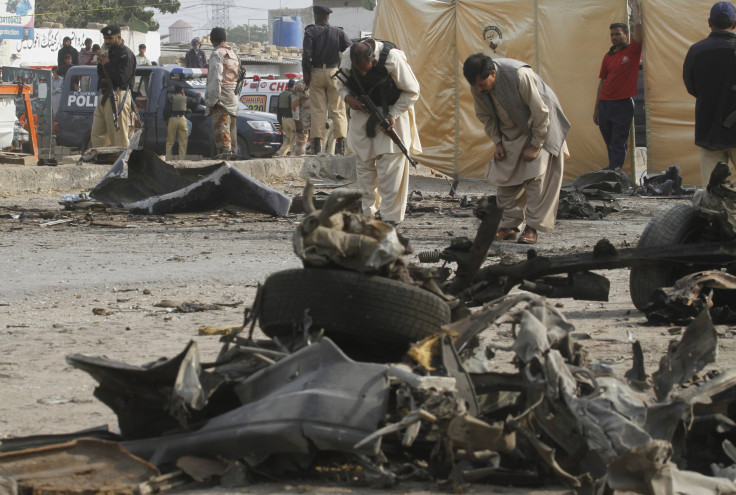Pakistani Jets Attack Militant Hideouts In Waziristan Killing 40 Militants After Pakistani Taliban's Execution Of 23 Soldiers Scuttles Peace Talks

At least 40 militants were killed Thursday as Pakistani fighter jets bombed militant hideouts across Waziristan, a mountainous range on the border with Afghanistan, after peace talks with the Pakistani Taliban floundered this week, news reports said.
Pakistan’s Prime Minister Nawaz Sharif authorized the air strikes on militant-controlled regions, after Tehreek-e-Taliban Pakistan, or TTP, announced Sunday that it killed 23 soldiers kidnapped by the outfit in 2010. After peace talks collapsed following the TTP's announcement, speculation surrounded Sharif's next move, suggesting that a government-led attack against the militant group was imminent to curb attacks on Pakistani soil.
"After restraining the army for three days, the prime minister himself authorized the strikes last night. It was the only option to teach the Taliban a lesson," a government official said, according to Reuters.
The army had recently revealed that more than 100 soldiers had been killed by the TTP over the last five months. Even as discussions about the peace talks began on Feb. 6, the TTP had been reportedly conducting attacks across the country, causing several deaths.
“The prime minister wants to resolve these issues without bloodshed but if the Taliban continue killing people then we will be left with no choice but to keep our citizens safe from terrorism, through any means possible," Sharif’s spokesperson in a statement on television on Wednesday, Reuters reported.
According to a news report by Agence France-Presse, or AFP, the attacks were made on the town of Mir Ali in northern Waziristan and a few other neighboring regions.
At least 93 people have been killed in TTP’s attacks since Jan. 29, when the peace talks were announced while the Taliban had said that 60 of its militants had died before the attack on Thursday, AFP reported.
Ibrahim Khan, a peace negotiator for Taliban told AFP, said that the chance of a settlement and bringing peace to the region could not be ruled out.
“The bad effects are very visible but even then we will continue our struggle for the establishment of peace. Negotiations are the only way. There is no other way,” Khan told AFP. However, on Feb. 17, after the talks were canceled, TTP attacked an army base killing yet another soldier.
An earlier report by Reuters said that the group has killed more than 40,000 people in the country since 2007.
TTP’s demands include the imposition of Shariah law along with an end to U.S. drone attacks, and the withdrawal of its troops from northwest Pakistan, which include Waziristan where many al Qaeda militants are also said to be residing. According to reports, these demands are unlikely to be met, prolonging the bloody conflict between TTP and the Pakistani government.
Sharif had reportedly said on Monday that “such incidents have an extremely negative impact on the ongoing dialogue aimed at promoting peace," adding that the country "cannot afford such bloodshed." He had also stated that all previous attempts at dialog had been "sabotaged whenever it reached an encouraging stage."
© Copyright IBTimes 2024. All rights reserved.






















